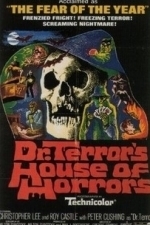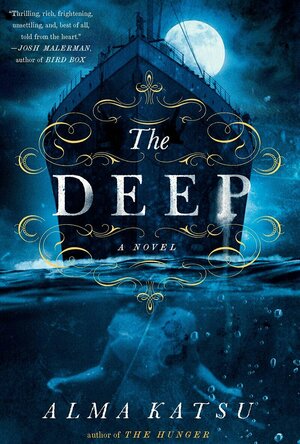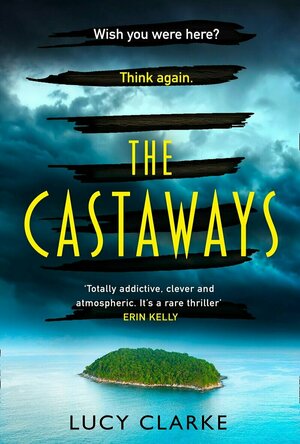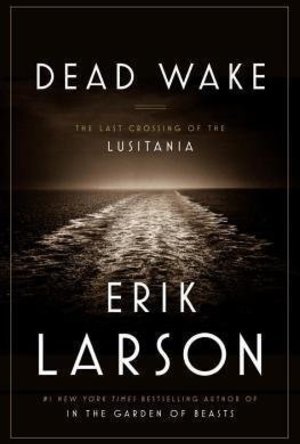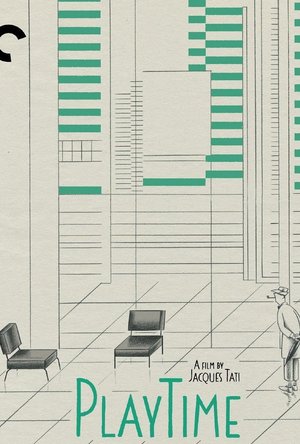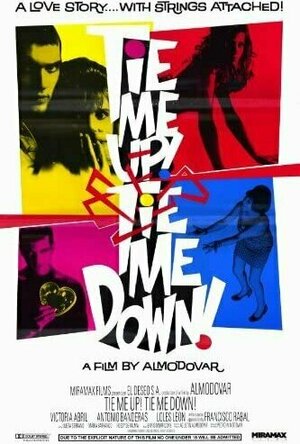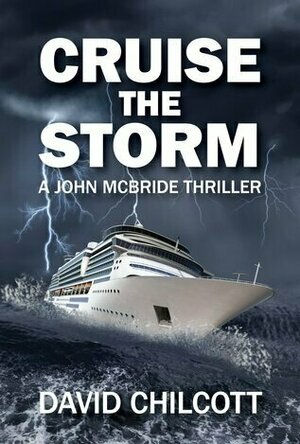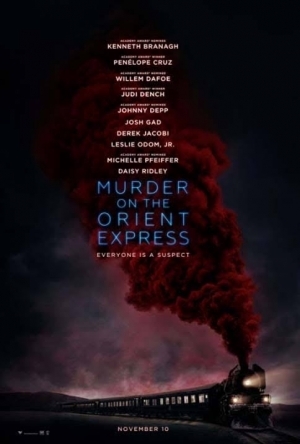Search
Search results
Matthew Krueger (10051 KP) rated Dr. Terror's House of Horrors (1965) in Movies
Sep 1, 2020
Peter Cushing (2 more)
Christopher Lee
Donald Sutherland
House of Horrors
Dr. Terror's House of Horrors is a excellent british anthology film that stars two horror icons Christopher Lee and Peter Cushing. It also has Donald Sutherland in it, so thats a plus.
It was the first in a series of anthology films from Amicus and was followed by Torture Garden (1967), The House That Dripped Blood (1970), Asylum (1972), Tales from the Crypt (1972), The Vault of Horror (1973) and From Beyond the Grave (1974).
The movies was made with a budget of £105,000 and Donald Sutherland was paid £1,000 ($10,153.31 in 2018 dollars) for his performance.
The Plot: Five chilling stories are linked by the character of a strange fortune-telling doctor who predicts the bizarre deaths of five fellow passengers on a train using a pack of tarot cards.
Its a excellent anthology film.
It was the first in a series of anthology films from Amicus and was followed by Torture Garden (1967), The House That Dripped Blood (1970), Asylum (1972), Tales from the Crypt (1972), The Vault of Horror (1973) and From Beyond the Grave (1974).
The movies was made with a budget of £105,000 and Donald Sutherland was paid £1,000 ($10,153.31 in 2018 dollars) for his performance.
The Plot: Five chilling stories are linked by the character of a strange fortune-telling doctor who predicts the bizarre deaths of five fellow passengers on a train using a pack of tarot cards.
Its a excellent anthology film.
This is a book that starts off in a pretty harmless, if tragic way, and goes on to weave the stories of the Titanic and the Britannic together. Annie Hebley is an ex-stewardess from the Titanic, and when we first meet her she is a patient in an asylum. A fellow stewardess invites her to work on the Britannic some years later (1916), after it has been converted in to a hospital ship. Without any nursing experience, other than what she has watched the nurses do in the asylum, Annie accepts the job.
As soon as she sets foot on the Britannic, the memories of that fateful Titanic journey come flooding back to her. The atmosphere on the voyage in the lead up to the Titanic's destruction, can only be described as menacing. The passengers are fascinating - there's a real mix of people that we learn about. There is something definitely not quite right about the ship, but I was never able to put my finger on it (and I think that was intended). And that feeling follows Annie on to the Britannic.
I always think the unseen menace is far more frightening than what can be seen, and I really enjoyed this approach. I loved learning the backstories of the passengers, and the eventual reveal of Annie's story too. It really is historical fiction with a twist (that twist leaving me with a reluctance to ever get on a ship, if I'm honest). How Annie ever gets up the courage to board the Britannic, I'll never know.
If you know your history surrounding these two boats, you'll have a pretty good idea how this all ends, but it's the journey, isn't it? And it's also the way in which Alma Katsu manipulates that history that I really enjoyed. If you like your historical fiction a bit dark, a bit gothic, then you'll really like this. I did.
Many thanks to NetGalley and the publisher for my copy of this book.
As soon as she sets foot on the Britannic, the memories of that fateful Titanic journey come flooding back to her. The atmosphere on the voyage in the lead up to the Titanic's destruction, can only be described as menacing. The passengers are fascinating - there's a real mix of people that we learn about. There is something definitely not quite right about the ship, but I was never able to put my finger on it (and I think that was intended). And that feeling follows Annie on to the Britannic.
I always think the unseen menace is far more frightening than what can be seen, and I really enjoyed this approach. I loved learning the backstories of the passengers, and the eventual reveal of Annie's story too. It really is historical fiction with a twist (that twist leaving me with a reluctance to ever get on a ship, if I'm honest). How Annie ever gets up the courage to board the Britannic, I'll never know.
If you know your history surrounding these two boats, you'll have a pretty good idea how this all ends, but it's the journey, isn't it? And it's also the way in which Alma Katsu manipulates that history that I really enjoyed. If you like your historical fiction a bit dark, a bit gothic, then you'll really like this. I did.
Many thanks to NetGalley and the publisher for my copy of this book.
Hazel (2934 KP) rated The Castaways in Books
Oct 3, 2021
An intriguing and enjoyable mystery about one sister's quest for survival and the other's hunt for answers.
Lori and Erin are close having lost their parents at an early age. Things are not going too well for either of them but Lori in particular, so she books a holiday of a lifetime for them both to a Fijian island. Unfortunately, things don't go to plan and Lori finds herself on the plane without her sister. Disaster then ensues when the plan goes missing. Two years later, the pilot turns up - he has been working under an alias in Fiji.
What the heck happened? Why wasn't Erin on the plane? Where are the rest of the passengers? Did anyone else survive and why did the pilot go into hiding? So many questions!
Written in two distinct voices and time lines - Lori in the then and Erin in the now - the story follows Erin's search for the truth about what happened to her sister and the rest of the passengers and Lori's experience from the moment she realised something was going terribly wrong with the plane.
Lucy Clarke's writing is captivating and puts you right at the heart of the story; the two main characters are really well developed and you absolutely get a sense of the strong bond between the two sisters. The pacing is pretty good - the beginning is riveting, it dips a bit in the middle but then ramps up again towards the end. The plot is expertly weaved throughout with twists jumping from nowhere, just when you think you've worked it out, and with an ending that is quite satisfactory.
Overall, I enjoyed this book from an author I've never read anything from before and I would recommend to those who enjoy a bit of escapism albeit one with a few twists and hair-raising moments.
Thank you to HarperCollinsUK / HarperFiction and NetGalley for my copy in return for an honest, unbiased and unedited review.
Lori and Erin are close having lost their parents at an early age. Things are not going too well for either of them but Lori in particular, so she books a holiday of a lifetime for them both to a Fijian island. Unfortunately, things don't go to plan and Lori finds herself on the plane without her sister. Disaster then ensues when the plan goes missing. Two years later, the pilot turns up - he has been working under an alias in Fiji.
What the heck happened? Why wasn't Erin on the plane? Where are the rest of the passengers? Did anyone else survive and why did the pilot go into hiding? So many questions!
Written in two distinct voices and time lines - Lori in the then and Erin in the now - the story follows Erin's search for the truth about what happened to her sister and the rest of the passengers and Lori's experience from the moment she realised something was going terribly wrong with the plane.
Lucy Clarke's writing is captivating and puts you right at the heart of the story; the two main characters are really well developed and you absolutely get a sense of the strong bond between the two sisters. The pacing is pretty good - the beginning is riveting, it dips a bit in the middle but then ramps up again towards the end. The plot is expertly weaved throughout with twists jumping from nowhere, just when you think you've worked it out, and with an ending that is quite satisfactory.
Overall, I enjoyed this book from an author I've never read anything from before and I would recommend to those who enjoy a bit of escapism albeit one with a few twists and hair-raising moments.
Thank you to HarperCollinsUK / HarperFiction and NetGalley for my copy in return for an honest, unbiased and unedited review.
Alison Pink (7 KP) rated Dead Wake: The Last Crossing of the Lusitania in Books
Jan 15, 2018
I stumbled on this book quite by accident while on one of my hours long "grocery shopping" treks through Target. I have had several Erik Larson books on my To Read list for awhile. It was just one of those, "I'll get to them one day," kind of things. I saw this on the shelf & bought it on a whim. I found it it be a truly engaging narrative, not just about the tragic torpedoing & sinking of the Lusitania, but about the passengers & crew too. The human side of the story is what really grabbed me. I will admit that it started off a bit slow for my taste, but I did get immersed in the day to day lives of those aboard the ship. The tales of survival are amazing along with all the political maneuvering that occurred in the wake of the sinking. This is a fascinating snapshot of world history told from a very personal perspective. Well word the read.
Reggie Watts recommended Playtime (1967) in Movies (curated)
Awix (3310 KP) rated Tie Me Up! Tie Me Down! (¡Átame!) (1989) in Movies
Jun 3, 2020
Black romantic-comedy, a rare misfire from Pedro Almodovar. A mentally-unstable young man kidnaps a troubled actress and junkie and keeps her prisoner until she falls in love with him. Yes, I know: I would say it was a Spanish thing but it's fundamentally the same plot as Passengers and a few other movies.
I suppose it's conceivable that you could make quite an interesting and provocative film based on such a premise, provided you approached it the right way (perhaps in this case doing it ironically might be justified). However, Almodovar plays it unexpectedly straight, and quite apart from how dodgy the basis of the plot is, not even actors like Banderas and Abril (who do the best they can with the material) can make the story work. Lots of interesting characters and story material gets crowded out to the edges of the film, and it's oddly graphic for what's supposed to be a romance. Watchable but not satisfying.
I suppose it's conceivable that you could make quite an interesting and provocative film based on such a premise, provided you approached it the right way (perhaps in this case doing it ironically might be justified). However, Almodovar plays it unexpectedly straight, and quite apart from how dodgy the basis of the plot is, not even actors like Banderas and Abril (who do the best they can with the material) can make the story work. Lots of interesting characters and story material gets crowded out to the edges of the film, and it's oddly graphic for what's supposed to be a romance. Watchable but not satisfying.
Phil Leader (619 KP) rated Cruise the Storm (John McBride #2) in Books
Nov 12, 2019
A group of terrorist hijackers on board a cruise ship. An ex SAS soldier on board teaching watercolour painting. A huge storm bearing down on the ship.
This might sound like the plot of some Hollywood blockbuster full of explosions and witty one liners from the hero but Chilcott delivers something a lot more cerebral than that. The story and characters have a sense of reality and this is more like a game of chess between the chief hijacker and the crew, a game where the ship is the board and the pawns the passengers which the terrorists are only too willing to dispose of to meet their aims.
Keith Bourne is the founder and leader of the White Christian League, an extreme right wing terrorist organisation who specialise in violent demonstration and the odd mosque burning. Bourne wants cash to further his rather nasty aims and decides that hijacking a cruise liner will fit the bill nicely. MI5 have been watching him and manage to get one of their agents onto the boat in an attempt to thwart Bourne and his cronies.
John McBride is a watercolour artist of some renown who is drafted onto the cruise to teach any interested passengers how to paint in watercolours, the scenes in the various Mediterranean ports they will be visitng being ideal subjects. McBride also happens to be a former member of the elite SAS and when he is made aware of the plot to hijack the ship is able to advise the captain and MI5.
The tension cranks up nicely through the first half of the book, seen mostly from the point of view of Bourne and McBride as each becomes aware of each other and both their plans have to be changed by circumstance. Everything comes to a head on the night the storm hits the ship.
At this point, with everything poised on a knife edge of success or failure for both sides, Chilcott pulls a deft narrative twist and goes back and tells the story again from the point of view of the chairman of the cruise line and one of the passengers, once again building up to the crisis point. This has the nice effect of filling in details that were previously only mentioned but also did lose the momentum which took a while to get going again. It may have been better to tell the story purely sequentially but seeing events from different perspectives again was interesting.
The characters and situations are written with a real authenticity. There are no miraculous escapes, no amazing feats of marksmanship and this is a very real strength of Chilcott's writing. Everthing happens in a way that seems very authentic - and in the case of the actions of the hijackers, worryingly so. Every action and reaction of the characters is plausible and there are frequent points where the story could go one way or another just on a chance encounter or random event.
This realism also felt a little like a weakness to me. Some things happen which provide some dramatic tension at the time but ultimately don't really have a bearing on the eventual outcome. Although this is very much like real life, perhaps it is not what is expected in a thriller of this type. In particlar (and these aren't really spoilers) the ship is damaged in the storm but this doesn't really affect anything, and also what happens when events are told from the point of view of one of the passengers looks to be building to something interesting but ultimately fizzles away. I would have liked to see more of these sub plots carried forward to the end of the story.
Despite this, the book was a good and interesting read and I am looking forward to reading more of Chilcott's McBride novels. I would recommend this book to anyone who likes their thrillers character driven and cerebral rather than all action. Plus you will pick up some excellent tips on painting in watercolours as a bonus.
Rated: Some violence, language and sexual references
This might sound like the plot of some Hollywood blockbuster full of explosions and witty one liners from the hero but Chilcott delivers something a lot more cerebral than that. The story and characters have a sense of reality and this is more like a game of chess between the chief hijacker and the crew, a game where the ship is the board and the pawns the passengers which the terrorists are only too willing to dispose of to meet their aims.
Keith Bourne is the founder and leader of the White Christian League, an extreme right wing terrorist organisation who specialise in violent demonstration and the odd mosque burning. Bourne wants cash to further his rather nasty aims and decides that hijacking a cruise liner will fit the bill nicely. MI5 have been watching him and manage to get one of their agents onto the boat in an attempt to thwart Bourne and his cronies.
John McBride is a watercolour artist of some renown who is drafted onto the cruise to teach any interested passengers how to paint in watercolours, the scenes in the various Mediterranean ports they will be visitng being ideal subjects. McBride also happens to be a former member of the elite SAS and when he is made aware of the plot to hijack the ship is able to advise the captain and MI5.
The tension cranks up nicely through the first half of the book, seen mostly from the point of view of Bourne and McBride as each becomes aware of each other and both their plans have to be changed by circumstance. Everything comes to a head on the night the storm hits the ship.
At this point, with everything poised on a knife edge of success or failure for both sides, Chilcott pulls a deft narrative twist and goes back and tells the story again from the point of view of the chairman of the cruise line and one of the passengers, once again building up to the crisis point. This has the nice effect of filling in details that were previously only mentioned but also did lose the momentum which took a while to get going again. It may have been better to tell the story purely sequentially but seeing events from different perspectives again was interesting.
The characters and situations are written with a real authenticity. There are no miraculous escapes, no amazing feats of marksmanship and this is a very real strength of Chilcott's writing. Everthing happens in a way that seems very authentic - and in the case of the actions of the hijackers, worryingly so. Every action and reaction of the characters is plausible and there are frequent points where the story could go one way or another just on a chance encounter or random event.
This realism also felt a little like a weakness to me. Some things happen which provide some dramatic tension at the time but ultimately don't really have a bearing on the eventual outcome. Although this is very much like real life, perhaps it is not what is expected in a thriller of this type. In particlar (and these aren't really spoilers) the ship is damaged in the storm but this doesn't really affect anything, and also what happens when events are told from the point of view of one of the passengers looks to be building to something interesting but ultimately fizzles away. I would have liked to see more of these sub plots carried forward to the end of the story.
Despite this, the book was a good and interesting read and I am looking forward to reading more of Chilcott's McBride novels. I would recommend this book to anyone who likes their thrillers character driven and cerebral rather than all action. Plus you will pick up some excellent tips on painting in watercolours as a bonus.
Rated: Some violence, language and sexual references
Emma @ The Movies (1786 KP) rated Murder on the Orient Express (2017) in Movies
Sep 25, 2019
It is 1934, and our moustachioed detective has just solved a theft in Jerusalem. He looks forward to resting in Istanbul, but his break is interrupted with the news that he must return to London for a case. It seems like Poirot's luck is in, having just met his friend who is director of the Orient Express.
Once on board Poirot catches the attention of the businessman, Samuel Ratchett. Ratchett has received threatening letters, and wishes to hire the detective as his bodyguard during their journey, but the offer is politely declined.
That night an avalanche derails he train and the passengers are stranded. In the morning Ratchett is found dead, stabbed a dozen times. Poirot and Bouc, the train director, investigate the passengers as repairs begin. Poirot discovers a partially destroyed note connecting Ratchett to the kidnapping of Daisy Armstrong, a child who was abducted from her bedroom and held for ransom. After the ransom was paid, Daisy was found murdered. Ratchett is identified as John Cassetti, Daisy’s kidnapper and murderer.
First off, let me address the elephant in the room... that'll be Kenneth Branagh as Poirot. David Suchet will always be my Poirot, he's perfect. Branagh, for me, has an overacting issue. And that moustache, it's just ridiculous. That's not even taking into account the scene where Poirot is laying in bed and he doesn't have his night-time moustache cosy on. Crazy.
Agatha Christie's tale has definitely been given the Hollywood treatment. It's gone from the quite dark Suchet version, to something quite farcical in comparison. I can understand remaking some things, but when you have such a definitive portrayal of a character why would you recast them?
Having just rewatched the 2010 version I will say that the story line in the movie is probably easier to understand. It's also more suitable for a younger audience.
As a passing comment to everyone who was surprised to hear they were going to do Death On The Nile next... no shit, Poirot! It was dropped in at the end of the film.
Once on board Poirot catches the attention of the businessman, Samuel Ratchett. Ratchett has received threatening letters, and wishes to hire the detective as his bodyguard during their journey, but the offer is politely declined.
That night an avalanche derails he train and the passengers are stranded. In the morning Ratchett is found dead, stabbed a dozen times. Poirot and Bouc, the train director, investigate the passengers as repairs begin. Poirot discovers a partially destroyed note connecting Ratchett to the kidnapping of Daisy Armstrong, a child who was abducted from her bedroom and held for ransom. After the ransom was paid, Daisy was found murdered. Ratchett is identified as John Cassetti, Daisy’s kidnapper and murderer.
First off, let me address the elephant in the room... that'll be Kenneth Branagh as Poirot. David Suchet will always be my Poirot, he's perfect. Branagh, for me, has an overacting issue. And that moustache, it's just ridiculous. That's not even taking into account the scene where Poirot is laying in bed and he doesn't have his night-time moustache cosy on. Crazy.
Agatha Christie's tale has definitely been given the Hollywood treatment. It's gone from the quite dark Suchet version, to something quite farcical in comparison. I can understand remaking some things, but when you have such a definitive portrayal of a character why would you recast them?
Having just rewatched the 2010 version I will say that the story line in the movie is probably easier to understand. It's also more suitable for a younger audience.
As a passing comment to everyone who was surprised to hear they were going to do Death On The Nile next... no shit, Poirot! It was dropped in at the end of the film.
Suswatibasu (1701 KP) rated Around The World in 80 Days in Books
Nov 20, 2017
The Diary of a Great Adventure
It's easy to take for granted the shrinking of our world but Palin's book reinforced the need for us to appreciate first hand the connections between nations, and the people that maintain them.
The trip was intended to follow the route traveled by Phileas Fogg in Jules Verne's novel from 1872. The self-imposed rule was that airplane travel was not allowed so only trains, buses, ships and cars could be used. This was problematic for Michael Palin because in 1872 there were many passenger ship lines, while in 1988 there were almost none because of air travel. As a result he had to obtain passage on various cargo and container ships that normally don't accept passengers.
The large amount of sea travel is a negative aspect because it's limited how many interesting things can be done aboard a container ship, for example. In fact, a significant number of the 80 days are spent on board ships, and it gets rather boring.
However, it is a very human account of a famous journey.
The trip was intended to follow the route traveled by Phileas Fogg in Jules Verne's novel from 1872. The self-imposed rule was that airplane travel was not allowed so only trains, buses, ships and cars could be used. This was problematic for Michael Palin because in 1872 there were many passenger ship lines, while in 1988 there were almost none because of air travel. As a result he had to obtain passage on various cargo and container ships that normally don't accept passengers.
The large amount of sea travel is a negative aspect because it's limited how many interesting things can be done aboard a container ship, for example. In fact, a significant number of the 80 days are spent on board ships, and it gets rather boring.
However, it is a very human account of a famous journey.
Sean Farrell (9 KP) rated Dead Wake: The Last Crossing of the Lusitania in Books
Mar 15, 2018
Erik Larson has done it again. One of our time's finest writers of non-fiction has once more taken a page from our history and turned it into a most compulsively readable book. This time telling the tale of the sinking of the luxury liner Lusitania by the Germans during World War I, the narrative follows everyone from the passengers and crew of the ill-fated ship, to the men on the U-boat that fired the torpedo, to the British and American officials monitoring the situation and making the decisions about how to respond. Mr. Larson provides a stunning amount of detail, enough to make one feel as if they had actually spent time aboard the opulent liner with its travelers, but at no point does it seem as though the details are bogging things down. To the contrary, events move along at a brisk pace as they head towards their tragic end. It is a sad but fascinating tale, handled here with aplomb, in what is sure to wind up on many year-end best lists.
